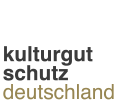Do simplified rules apply in certain cases?
The German Act on the Protection of Cultural Property (Kulturgutschutzgesetz, KGSG) also provides for exemptions and possible dispensations for certain interest groups in cases where an export licence must be obtained for cultural property.
Short-term stays in Germany
Even if a cultural object exceeds the relevant age and value thresholds, Section 24 (8) KGSG states that no export licence is required if plans exist to (re-)export it into the EU internal market, provided that it can be shown that the object in question has demonstrably been imported into Germany on a temporary basis only and for a period of up to two years (based on the French model and therefore referred to as the “laissez-passer” rule). Certain requirements must, however, be met in this connection; in particular, the cultural object must have been imported lawfully into Germany, and it must not already have been exported unlawfully out of Germany. The rule applies to everyone, regardless of the reason for the import (commercial or private). The import and export dates must be proven by the exporter, acting in his or her own interest, by means of freight, insurance or other documents.
Blanket licences
Under certain circumstances, private collectors can also benefit from two special arrangements that exist under the Act on the Protection of Cultural Property in relation to the export of cultural property. Collectors who have “separated off” part of their collection in a particular form, for example by contributing it to a private and publicly accessible museum, can apply to the supreme Land authority for a “general open licence” for their holdings pursuant to Section 25 KGSG. Collectors who have not done so but who wish to lend a specific cultural object abroad on a regular basis can apply for a “specific open licence” pursuant to Section 26 KGSG for the cultural object in question. Both types of licence greatly simplify the process of cross-border loans.
Confirmation of exempt status
Finally, the obligation for an export licence pursuant to Section 24 (2) KGSG does not apply to exports within the EU if confirmation of exempt status has been issued for the cultural object in question, i.e. if the competent supreme Land authority has determined on a legally binding basis that the relevant work does not meet the criteria set out in Section 7 KGSG for entry in a register of cultural property of national significance. Further information can be found in the section on General provisions.

